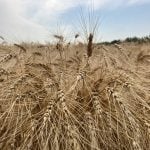Australia’s huge cattle herd in the north might be burping less planet-warming methane emissions than thought, said a study released on May 27, suggesting the cows are more climate friendly. Cattle, sheep and other ruminant livestock produce large amounts of methane, which is about 20 times more powerful at trapping heat than carbon dioxide. One



